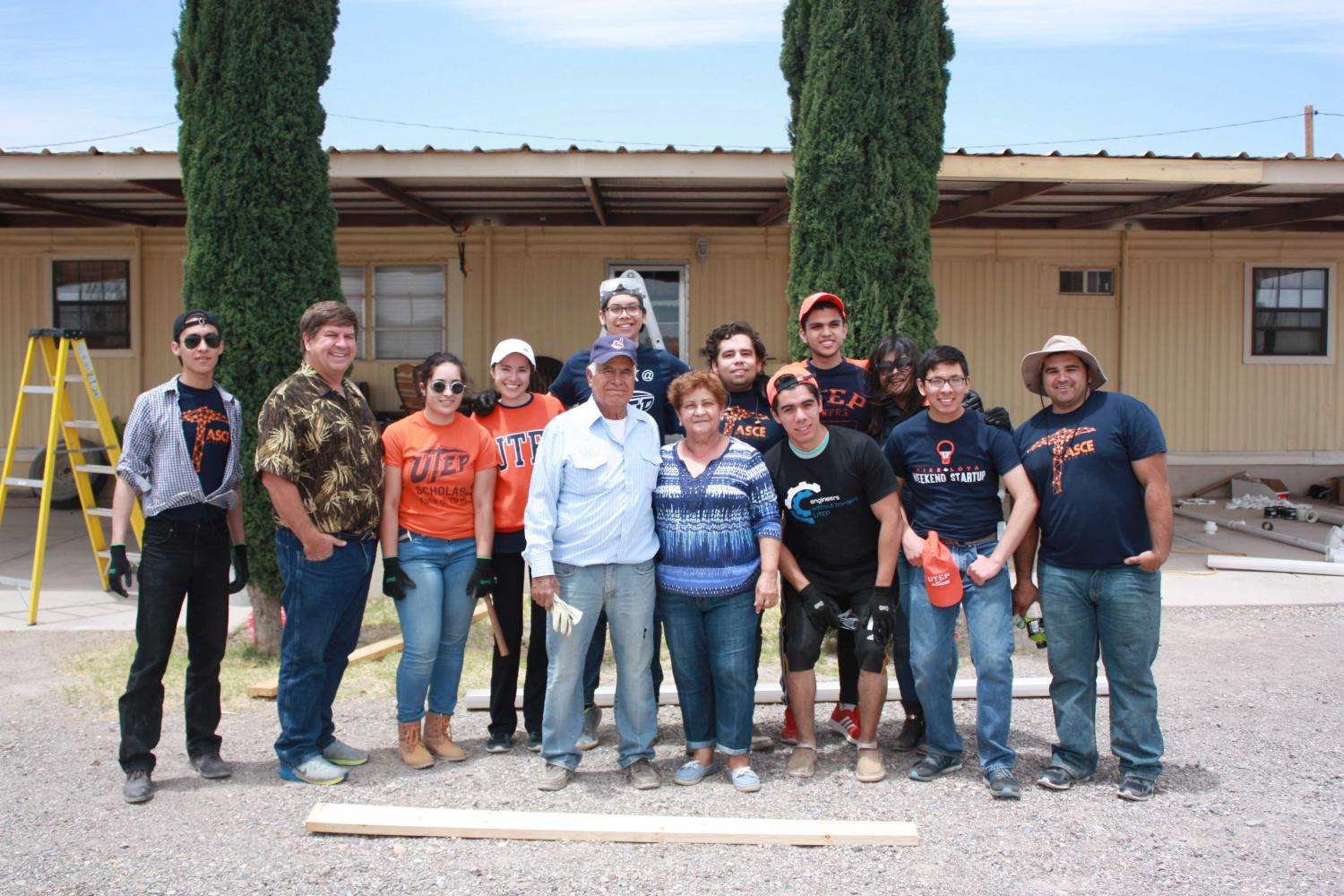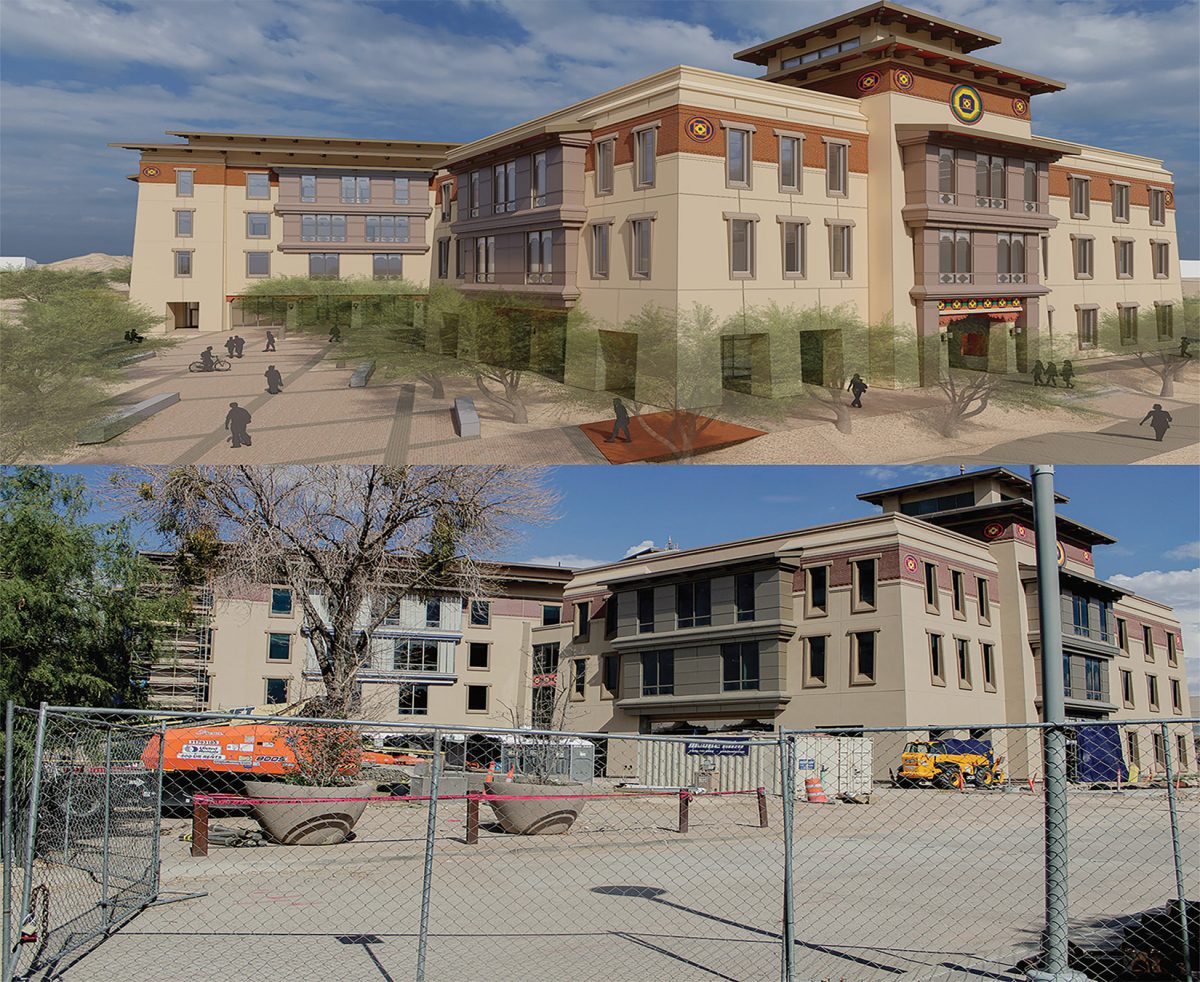Imagine not having running water every day in your home and having to haul water up to three times a week to do simple things, such as bathing, watering plants, cooking or anything that requires water.
While that simple thought seems foreign to most people in El Paso, four hours away in colonias outside of Presidio County it is a reality for most residents.
Those who live in the Presidio area are tasked to haul water two to three times per week and store it in water tanks for their personal usage.
A group of UTEP students are seeking to change this with a plan they developed for these homes and families. This group of students discovered a new way to harvest rainwater at a home with no piped water.
This project makes it possible for families to collect water for all usages by eliminating the burden of having to collect water consistently throughout the week.
“Our proposal was to extend water services along Highway 67 in the Colinas Las Pampas,” said Michelle Del Rio, the house impact assessment program manager who assisted the UTEP group with this initiative. “We found out it would take people 10 miles to get water and most of these people were elderly. We found out there was even an 80-year-old who would haul water.”
At these filling stations, residents would fill up large containers with hundreds of gallons of water. After testing this water, the group found out there was no risk of contamination, but there was a risk in the hauling process itself.
“We found through the hauling process, there were accidents,” Del Rio said. “It is a harsh life. They purchased this property with the idea that they’d get water in two years, but that was 15 years ago. Now with this, they have hope. We don’t know when the state is going to get water for them, but we want to offer a solution for them.”
The students got to work by mapping out the usage of tanks and how they could preserve the rainwater. Jesus Placencia, a graduate student pursuing a master’s degree in engineering, was the foreman of constructing the pipeline stream to conserve water for the homes.
The group was able to get donations from different businesses for substitutes for water tanks. The local Coca-Cola plant donated 16 275-gallon syrup tanks, which were converted to water tanks.
“The way it works is when it rains, runoff water will be captured by the different pipes and it will be sent to your tank and stored there,” Placencia said. “It’s actually very similar to how Centennial Plaza captures water when it rains. You can use the water inside homes to water plants and we did this so the gentleman didn’t have to go all the time to get water.”
Although they were unable to disclose the names of the owners of the house in which they worked on, Placencia said that the man of the home they worked on would haul water up to three times per week, and more often than that in the summer.
“Even though the rainwater harvesting won’t take all the needs of hauling water away, it will stop all the continuous trips he has to make,” he said. “This gave me an opportunity to practice and design civil engineering on water resources and enhanced my construction management skills.”
The group currently is not supported by department funding, so they hope that their efforts between their first two trials will prompt some department funding. They also hope to attract attention from EPA (Environmental Protection Agency), USCA (United States Climate Alliance) or someone else who can fund water infrastructure costs. The next house they will practice this on will be in September.
“For small cities like this, it will allow them to do a lot more,” Placencia said. “People move to Colinas to get away from big cities and be sustainable. If larger cities did this, they avoid a lot of floods and deterring of streets.”
After they finished the project at the first home, Del Rio said the group of eight engineering volunteers received much praise and gratitude from the owners.
“It felt to them that someone was actually there for them and cared about them,” Del Rio said. “This was a lot more practical for them and they liked it a lot.”
The group is keeping track of each time it rains and logging in the results the homeowners are having from now on. For more information on involvement, contact Placencia at [email protected].









